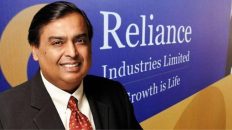National, 17 May 2023 – Deloitte’s 2023 Gen Z and Millennial Survey explores how the disruptive events of the last three years have shaped respondents’ lives and views. As the COVID-19 pandemic recedes, the report looks at how Gen Zs’ and millennials’ experiences in the workplace have evolved and finds that, while the pandemic clearly left significant negative legacies, it also ushered in some positive workplace trends. The survey looks broadly at the progress these generations feel their employers have made, where there is still work to do, and where potential setbacks may occur. It also explores how Gen Zs and millennials continue to make lifestyle and career decisions based on their values.
Now in its 12th year, the survey gathers insights from more than 22,000 Gen Z and millennial respondents across 44 countries. Their responses reveal that, while they acknowledge some positive change, they remain deeply concerned about their futures. The report underscores continuing concerns about personal finances, climate change, and mental health, and examines Gen Zs’ and millennials’ shifting relationship with work.
“Gen Zs and millennials are seeking an equilibrium between their professional and personal lives. They are also guided by a strong sense of purpose, deeply concerned about global issues, and aspire for a future where they can be active change agents. It is incumbent on employers to align with this mindset, fueling their drive for positive impact,” said Deepti Sagar, Chief People and Experience Officer, Deloitte India. “Businesses that respond to these needs and concerns will not only enhance their own resilience but will also contribute to meaningful societal transformations.”
Also read: Haryana permits liquor consumption in corporate offices
Gen Zs and millennials acknowledge workplace progress, but are seeking greater flexibility and work/life balance
Gen Z and millennial respondents are seeing employers make progress in some key areas since pre-pandemic times. Approximately 42 percent of Gen Zs and 55 percent millennials surveyed in India, in full- or part-time work, say they are very satisfied with their work/life balance.
The pandemic prompted a rethinking of the role work plays in their lives, and while nearly half of Gen Zs and a majority of millennials say their job is still central to their identities, they place a strong focus on work/life balance—the top trait they admire in their peers, and their top consideration when choosing an employer.
Gen Zs and millennials want flexibility in where and when they work. Many respondents now have hybrid or remote work models, a benefit they value deeply. Meanwhile, flexible work arrangements, which offer a range of work structures that alter when work gets done, or the number of hours worked, are a growing priority. Gen Zs and millennials would like to see their employers offer better career advancement opportunities for part-time employees, more part-time jobs overall, and the option for more flexible hours for full-time employees (e.g., condensed four-day work weeks).
While Gen Zs and millennials acknowledge the progress that employers have made in recent years, there is still work to do. They worry that the momentum will stop as businesses reckon with external challenges like economic uncertainty and the impact of the war in Ukraine.
Cost of living remains a top concern, and economic uncertainty is hampering respondents’ ability to plan for their futures
Seven in ten Indian Gen Zs and millennials are living paycheck to paycheck, significantly higher than the global average. If the global economy doesn’t improve, millennials in India are more likely to feel that it will become harder or impossible to buy a house than Gen Zs, however Indian Gen Zs are less optimistic about being able to ask for a pay raise than their global counterparts.
Despite their desires for better work/life balance and the ability to reduce working hours, many Gen Zs (66 percent) and millennials (57 percent) have taken on either a part-, or full-time, paying job in addition to their primary job to make ends meet. Top side jobs include selling products or services online, engaging in gig work, like food delivery or ride-sharing apps, pursuing artistic ambitions, and social media influencing. Globally as well, while social media is perceived as a source of income for some, it also exacerbates financial anxiety—51 percent of Gen Zs and 43 percent of millennials globally say social media makes them want to buy things they cannot afford.
Persistent stress and burnout are straining these generations
Fifty-three percent of Gen Zs and 45 percent of millennials surveyed in India say they feel stressed all or most of the time, and stress levels are even higher among women, LGBT+ respondents, and those with disabilities. In addition to concerns about their personal finances and the welfare of their friends and family, poor work/life balance and heavy workloads contribute to their stress levels. Respondents are also struggling to disconnect from work, with 37 percent of Gen Zs and 59 percent of millennials saying that they answer work emails outside of normal working hours at least five days a week. These workplace pressures may also be driving the increased levels of burnout since last year.
The drive for greater environmental sustainability and social impact is guiding lifestyle and career decisions
Eight in 10 Indian Gen Zs and millennials say they have felt anxious about the environment in the past month, and roughly the same percentage cite extreme weather events and wildfires as a stress driver. These concerns impact their decision-making, from family planning and home improvements, to what they eat and wear. Respondents are taking a range of actions, such as purchasing an electric vehicle or avoiding driving a car altogether, making their homes more energy-efficient, eating a vegetarian or vegan diet, and avoiding fast fashion in favour of second-hand clothes. Some are deciding to have fewer or no children to reduce their environmental impact.
Indian Gen Zs and millennials are significantly more likely to have put pressure on their employer to take action on climate change, and to believe their employer is providing the skills needed for the transition to a low-carbon economy. However, they’re also more likely to believe their employer has deprioritised its climate strategy due to external factors in recent years, this is particularly true among Indian millennials.
Gen Zs and millennials want their employers to help empower them and provide training and support, both to help them make more sustainable decisions in their own lives, and to develop the skills needed for the transition to a low-carbon economy. More than half (83 percent of Gen Zs and millennials) say they have already received this training, but it will be essential to scale this learning as it’s estimated that approximately 800 million jobs are vulnerable to climate extremes.
Employers can—and must—act
As businesses face new headwinds, it will be important during talent recruitment and retention efforts for employers to maintain the progress they’ve made and help drive greater momentum.
Stay connected with us on social media platform for instant update click here to join our LinkedIn, Twitter & Facebook
































